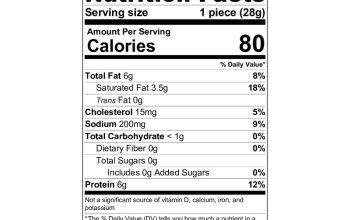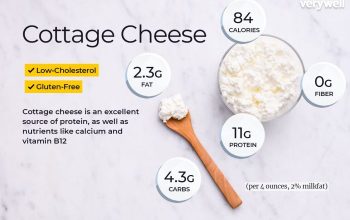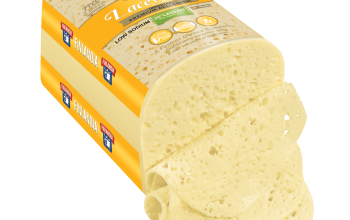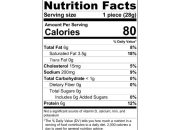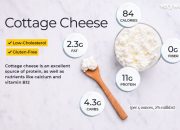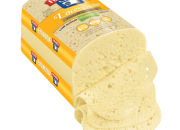Health Implications and Considerations: Shredded Cheddar Cheese Nutrition
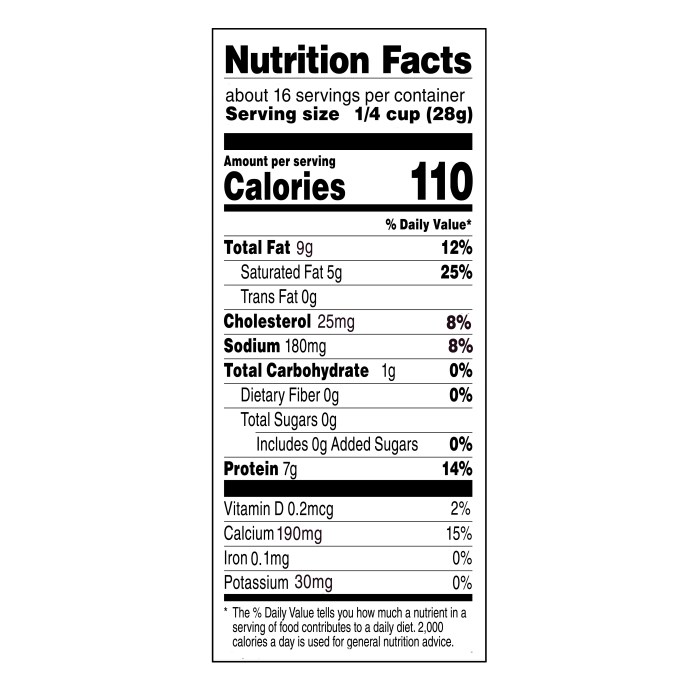
Shredded cheddar cheese nutrition – Shredded cheddar cheese, a pantry staple for many, presents a complex nutritional profile with both benefits and drawbacks. Understanding its impact on health requires a balanced perspective, considering its contributions of essential nutrients alongside its potential negative effects. This examination will delve into the positive aspects related to calcium and protein, while also addressing concerns regarding saturated fat and sodium intake.
Finally, we will compare its nutritional makeup to other cheese varieties.
Calcium and Protein Contributions of Cheddar Cheese
Cheddar cheese is a significant source of calcium, a crucial mineral for maintaining strong bones and teeth. Adequate calcium intake is vital throughout life, particularly during childhood and adolescence for bone development and in later years to prevent osteoporosis. One serving of cheddar cheese can contribute a substantial portion of the recommended daily calcium intake. Furthermore, cheddar cheese provides a good amount of protein, an essential macronutrient necessary for building and repairing tissues, supporting immune function, and contributing to overall satiety.
Protein is vital for maintaining muscle mass and promoting healthy metabolism. The combination of calcium and protein makes cheddar cheese a potentially valuable addition to a balanced diet, particularly for individuals seeking to increase their intake of these essential nutrients.
Shredded cheddar cheese, a vibrant cascade of golden strands, offers a sharp, satisfying bite and a good source of calcium. However, its fat content contrasts sharply with the creamy texture of Philadelphia cream cheese, whose nutritional profile you can explore in detail at philadelphia cream cheese nutrition facts. Understanding both profiles helps make informed choices when comparing these two popular cheese varieties, each with its unique textural and nutritional appeal.
Potential Drawbacks: Saturated Fat and Sodium Content
While cheddar cheese offers nutritional benefits, its high saturated fat and sodium content present potential drawbacks. Saturated fat, found abundantly in cheddar cheese, has been linked to increased cholesterol levels and an elevated risk of heart disease. Consuming excessive amounts of saturated fat can contribute to the development of cardiovascular problems. Similarly, the high sodium content in cheddar cheese is a concern.
Excessive sodium intake is associated with high blood pressure, increasing the risk of stroke and other cardiovascular complications. Individuals with pre-existing conditions such as hypertension or high cholesterol should monitor their cheddar cheese consumption carefully and consult with their healthcare providers regarding appropriate portion sizes.
Comparison with Other Cheeses
The nutritional profile of shredded cheddar cheese varies somewhat compared to other cheeses. For example, compared to lower-fat cheeses like part-skim mozzarella or feta, cheddar typically contains more saturated fat and calories. However, it might offer a higher calcium content than some other varieties. Hard cheeses like parmesan, while often lower in fat than cheddar, tend to be higher in sodium.
Soft cheeses, such as brie or camembert, generally have a higher fat content than cheddar but may be lower in sodium. The best choice depends on individual dietary needs and preferences, considering factors like fat content, sodium levels, and desired calcium intake. Ultimately, a balanced approach that incorporates variety within a broader healthy eating pattern is advisable.
Dietary Context and Recommendations
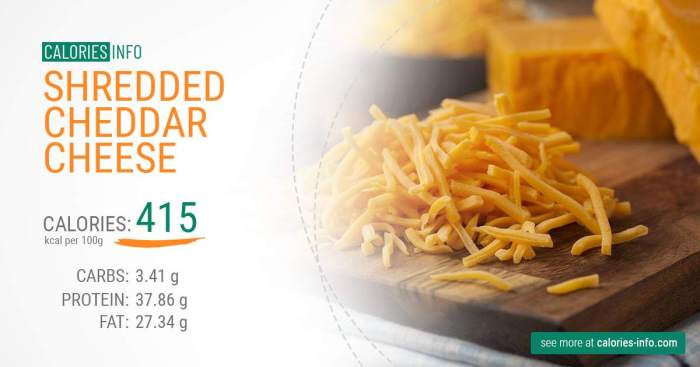
Incorporating shredded cheddar cheese into your diet requires mindful consideration of its nutritional profile and how it interacts with your overall eating patterns. Understanding its place within a balanced diet is key to enjoying its flavor without compromising your health goals. This section provides guidance on integrating shredded cheddar cheese responsibly and effectively.
Dietary Guidelines for Incorporating Shredded Cheddar Cheese, Shredded cheddar cheese nutrition
It’s crucial to remember that moderation is key when including shredded cheddar cheese in your diet. While it offers certain nutritional benefits, its high fat and sodium content necessitate careful planning. The following guidelines will help you incorporate it healthily:
- Portion Control: Limit your intake to recommended serving sizes. A typical serving is approximately one ounce (about 28 grams), which is roughly equivalent to a handful. Be mindful of how much you are adding to your meals.
- Balance with Nutrient-Rich Foods: Pair cheddar cheese with foods rich in fiber, vitamins, and minerals to create a more balanced nutritional profile. Think leafy greens, lean proteins, and whole grains.
- Sodium Awareness: Be aware of the sodium content in shredded cheddar cheese and choose lower-sodium varieties when possible. Alternatively, reduce the amount of salt you use in your recipes to compensate.
- Frequency: Don’t consume cheddar cheese daily. Spread its consumption throughout the week to better manage your overall fat and sodium intake.
- Consider Alternatives: Explore lower-fat cheese options or reduce your reliance on cheese as a primary source of flavor in your dishes.
Examples of Recipes and Meal Plans
Including shredded cheddar cheese in your meals doesn’t mean sacrificing flavor or a healthy diet. Here are some examples that showcase its use in balanced meals:
- Quinoa Salad with Black Beans, Corn, and Cheddar: This combines protein-rich quinoa, fiber-rich black beans and corn, and the sharpness of cheddar for a complete and satisfying meal.
- Vegetable Omelet with Cheddar: A quick and easy breakfast or lunch option that provides protein from eggs and vitamins from a variety of vegetables, complemented by the flavor of cheddar.
- Chicken and Vegetable Stir-fry with Cheddar-topped Brown Rice: This offers lean protein, a variety of vegetables, and whole grains, with a small amount of cheddar adding flavor to the brown rice.
- Baked Potato with Chili and Cheddar: A hearty and satisfying meal that combines complex carbohydrates from the potato, protein and fiber from chili, and a small amount of cheddar for flavor.
Shredded Cheddar Cheese in Different Dietary Approaches
Shredded cheddar cheese can be incorporated into various dietary plans, but always within reason and with attention to portion sizes.
- Low-Carb Diets: Cheddar cheese is naturally low in carbohydrates and can be a suitable addition to low-carb meals. However, it’s important to watch the fat content and ensure it aligns with your overall macronutrient goals. Pair it with low-carb vegetables and proteins.
- Ketogenic Diets: Similar to low-carb diets, cheddar cheese fits well into a ketogenic approach due to its low carbohydrate and high-fat content. It can be a valuable source of fat and flavor in keto-friendly meals. However, portion control remains crucial.
- Vegetarian Diets: Shredded cheddar cheese is a readily available source of protein and fat for vegetarians, offering a convenient way to add flavor and nutritional value to vegetarian meals. It complements many vegetables and grains.
Expert Answers
Is shredded cheddar cheese good for weight loss?
It can be, in moderation! It’s high in protein and can keep you feeling full, but the calorie and fat content need to be considered within your overall calorie goals.
Can I eat shredded cheddar cheese if I’m lactose intolerant?
It depends on your level of intolerance. Some people can tolerate small amounts, while others need to avoid it entirely. Look for lactose-free cheddar options if needed.
Does the type of cheddar cheese (sharp, mild) affect its nutritional value?
Slightly. Sharp cheddar tends to have a slightly higher fat content than mild cheddar, but the differences are usually minimal.
How long can I store shredded cheddar cheese?
Properly stored in an airtight container in the refrigerator, shredded cheddar cheese will typically last for 2-3 weeks.

